Rights And Obligations Of A Landlord
In this post, we’re going to give some general advice from the perspective of a commercial or retail lease.
For residential landlords, there are higher obligations and less rights in some respects, and TBA Law doesn’t generally work in residential leasing, but we do retail commercial leasing.
Landlords have a right to be paid rent, as well as the utilities and other things that they have paid for. Tenants are responsible for paying their own utilities and other things, but not land tax.
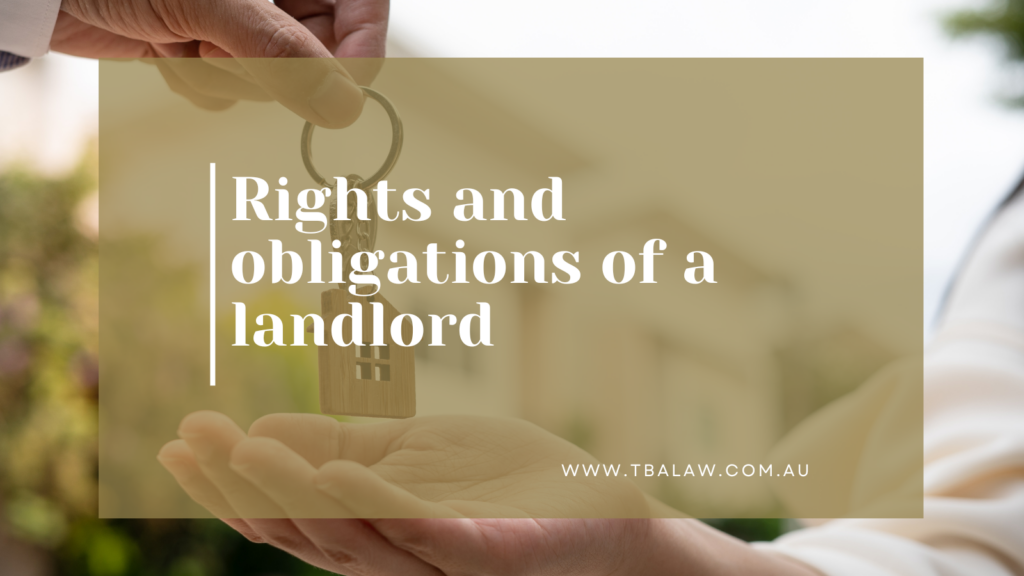
So, that’s one of the primary rights of a landlord. Other things that a landlord can expect when they’re leasing a property is that if they have made a list of items that go with the property that they’ve left there, those items are to remain there, aren’t to be disposed of, or damaged, or anything like that.
At the end of a lease, a commercial landlord can also expect that a tenant will make good the property. So, get it back to bare bones of what the property was when the tenant first went in. If it was a completely empty shop and the tenant had to do a full fit out, then it’s all to be removed unless negotiated otherwise by both parties. The landlord wants it back to bare bones so that another tenant can start from scratch rather than trying to configure someone else’s stuff.
If the landlord has left certain things at the property, they remain. Certain fittings and improvements that the landlord has made are to remain unless there is some negotiation and consent about changes throughout your lease. So, those are the main rights of the landlord. Obligations on a landlord seem to be greater so a landlord is supposed to be able to leave you alone. You give tenants what is called quiet enjoyment of the property. You can’t pop around all the time, which I think is commonly known. You have to give notice if you want to do an inspection. Inspections should only happen a certain number of times per year and that’s all in your lease. So, quiet enjoyment is important.
A commercial landlord is responsible for structural maintenance, so he or she is limited in terms of repairs and other things that must be done. The tenant of a retail space has more responsibility than the tenant of a residential space because if there’s a plumbing issue, if the air conditioner has stopped working or if there is an electrical fault on an outlet, all of those things are the tenant’s responsibility in a retail situation.
The other thing that a landlord must do is renew the lease if there is an option. With residential leases, you have shorter terms and you have built-in options. So, if a tenant wants to take up an option under a retail lease, the landlord can’t refuse so long as the tenant is paying rent on time and there’s no other major disputes. A landlord can’t, after the first term, just want to end the lease and not renew on another term.
In a commercial lease, landlords are often required to sign on for three years and then three more three-year terms, locking the property up for nine years. So, be sure you know what you’re getting into before signing a long-term lease.
Get in touch with our team at 1300 043 103 or admin@tbalaw.com.au if you need more information.


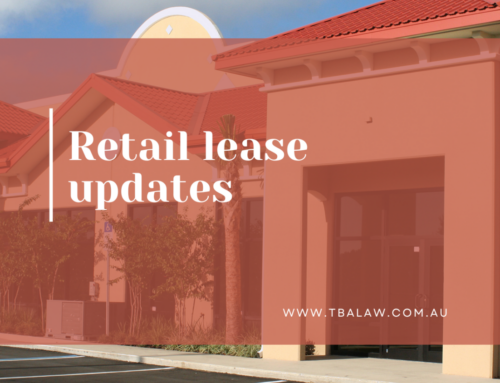
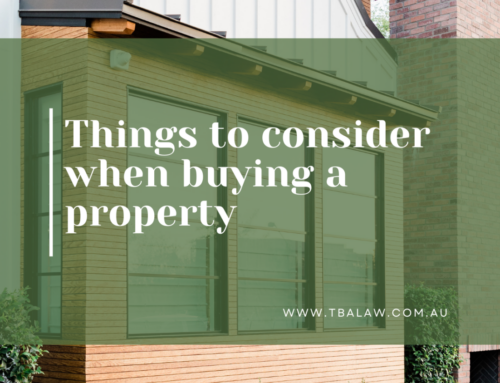
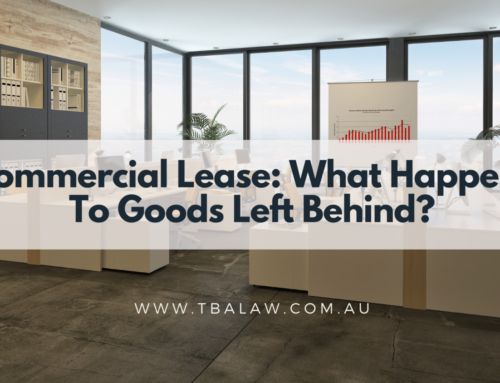
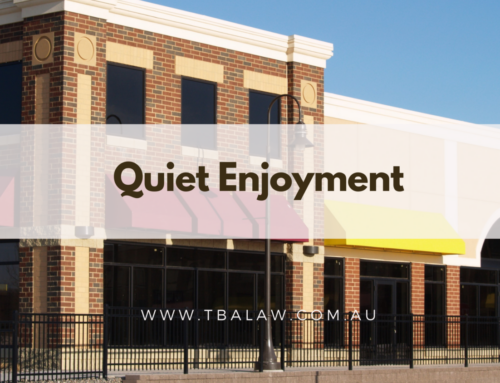
Leave A Comment